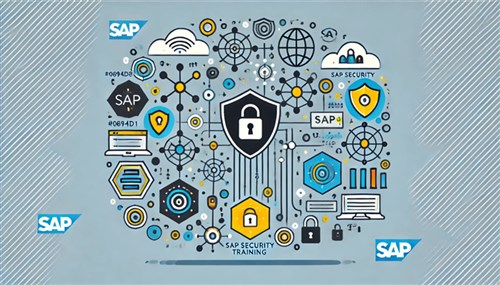
Accounts receivable (AR) is a crucial aspect of financial management for businesses, playing a significant role in maintaining healthy cash flow and ensuring operational efficiency. As organizations strive to optimize their financial practices, accounts receivable courses have gained prominence, providing essential training for professionals in finance, accounting, and business management. In this blog, we will delve into the foundational concepts and practices covered in an accounts receivable training program, shedding light on what you can expect to learn and how these skills can enhance your career prospects.
What is Accounts Receivable?
Accounts receivable refers to the money owed to a company by its customers for goods or services delivered but not yet paid for. Essentially, it represents credit extended to customers, and managing these receivables effectively is vital for maintaining a company's cash flow. When a company sells its products or services on credit, it records the transaction as an accounts receivable on its balance sheet. Efficient management of accounts receivable helps businesses minimize bad debts and improve their cash conversion cycles.
Key Topics Covered in an Accounts Receivable Course
1. Fundamentals of Accounts Receivable Management
An introductory section of an accounts receivable course focuses on the basic principles of accounts receivable management. Participants learn about the significance of managing receivables, how they affect cash flow, and the overall financial health of an organization. Key topics in this area include:
- The Accounts Receivable Cycle: Understanding the lifecycle of accounts receivable, from invoice generation to payment receipt.
- Importance of Cash Flow: Exploring how accounts receivable directly impacts a company’s cash flow and its ability to meet financial obligations.
2. Invoicing Procedures and Best Practices
Creating accurate and timely invoices is fundamental to effective accounts receivable management. Participants learn the essential components of an invoice, including:
- Invoice Structure: Key elements such as invoice number, date, due date, payment terms, and itemized list of goods or services provided.
- Electronic Invoicing: How to implement digital invoicing solutions for increased efficiency and accuracy.
- Best Practices: Tips for creating clear and concise invoices that minimize payment delays and disputes.
3. Credit Management
A significant aspect of accounts receivable is credit management, which involves assessing customer creditworthiness and determining appropriate credit terms. This section covers:
- Credit Policies: Developing effective credit policies that balance sales growth with risk management.
- Customer Assessment: Techniques for evaluating customer creditworthiness, including credit scoring and risk analysis.
- Setting Credit Limits: How to establish credit limits based on customer risk profiles and financial health.
4. Collections Strategies
Managing accounts receivable also entails implementing effective collections strategies to ensure timely payments. Participants learn various approaches to collections, including:
- Follow-Up Procedures: Establishing a systematic follow-up process for overdue invoices, including reminders and escalation procedures.
- Communication Skills: Techniques for communicating effectively with customers regarding outstanding payments, emphasizing the importance of maintaining positive relationships.
- Negotiation Tactics: Strategies for negotiating payment plans or settlements when customers face financial difficulties.
5. Dispute Resolution
Disputes over invoices and payments are common in accounts receivable management. This section focuses on how to handle disputes professionally and efficiently:
- Identifying Common Disputes: Understanding the types of disputes that may arise and their causes, such as billing errors or service issues.
- Resolution Techniques: Strategies for resolving disputes amicably, including effective communication and compromise.
- Documenting Disputes: The importance of keeping detailed records of disputes and resolutions for future reference.
6. Cash Flow Management and Reporting
Effective accounts receivable management is essential for maintaining healthy cash flow. In this section, participants learn how to analyze cash flow statements and their impact on the business:
- Cash Flow Analysis: Understanding how to assess cash flow statements and identify trends in accounts receivable.
- Key Performance Indicators (KPIs): Learning to measure and monitor KPIs related to accounts receivable, such as Days Sales Outstanding (DSO) and aging reports.
- Forecasting Cash Flow: Techniques for projecting cash flow based on accounts receivable data to make informed business decisions.
7. Utilizing Technology in Accounts Receivable
As technology continues to evolve, many businesses are adopting software solutions to streamline their accounts receivable processes. This section covers:
- Accounting Software: Overview of popular accounting and invoicing software that automates accounts receivable management.
- Integration with Other Systems: Understanding how accounts receivable systems can integrate with inventory, sales, and CRM systems for improved data accuracy and efficiency.
- Data Security: Best practices for safeguarding sensitive financial data in accounts receivable management.
8. Customer Relationship Management (CRM)
Managing customer relationships is integral to effective accounts receivable practices. Participants learn about:
- The Role of CRM in Accounts Receivable: How CRM systems can help track customer interactions, payment history, and credit limits.
- Building Strong Customer Relationships: Strategies for fostering positive relationships with customers to encourage timely payments and repeat business.
Benefits of Taking an Accounts Receivable Course
1. Enhanced Career Prospects
An accounts receivable course equips participants with valuable skills and knowledge that are highly sought after in finance and accounting roles. Completing such a course can lead to increased job opportunities and career advancement.
2. Increased Efficiency in Financial Management
Armed with a comprehensive understanding of accounts receivable management, professionals can implement best practices within their organizations, leading to improved efficiency and reduced payment delays.
3. Improved Decision-Making Skills
The analytical skills gained from learning how to assess cash flow and financial statements empower professionals to make informed decisions that positively impact their organizations.
4. Stronger Communication Skills
Effective communication is essential for managing customer relationships and handling collections. Accounts receivable courses help develop these skills, making participants more effective in their roles.
5. Networking Opportunities
Enrolling in an accounts receivable course provides opportunities to connect with industry professionals and peers, expanding one’s professional network.
Conclusion
In conclusion, an accounts receivable course offers valuable insights into essential financial management practices that are crucial for businesses of all sizes. From understanding the accounts receivable cycle to implementing effective collections strategies, the knowledge gained from such training can significantly enhance a professional's skill set and career prospects.
As organizations continue to prioritize efficient cash flow management, the demand for professionals skilled in accounts receivable will only grow. Whether you are looking to enter the finance field, advance in your current role, or improve your organization’s financial practices, an accounts receivable course is a worthwhile investment in your professional development. Ready to take the next step in your career? Register for our accounts receivable certification online today with Koenig Solutions and gain the skills needed to manage and maintain a company's accounts receivable effectively.







COMMENT